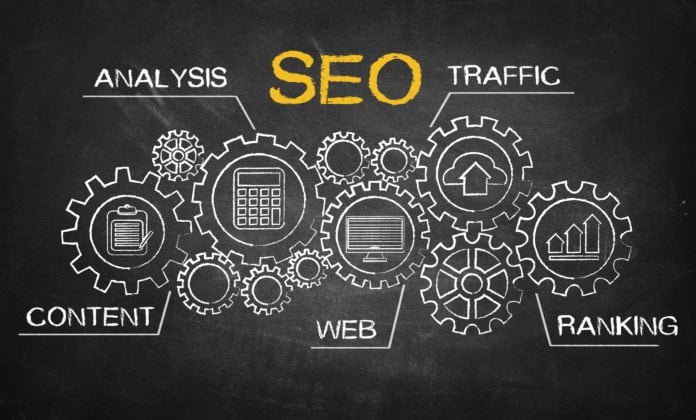One of the simplest things that a web admin should understand is how to optimize on-page search engine optimization and the on-web page SEO elements not to forget when developing a new internet site or while adding new content and pages to a present website. On-page search engine optimization predominantly pertains to tweaking your website’s code, choosing the proper keywords, and optimizing your content material basic to make it more appealing and identifiable to Google and different search engines’ net crawling bots so that they will, in turn, rank your web page higher inside the SERPs.
Keep in mind that search engines like Google and Yahoo region on those techniques are subjective as no person knows for certain the algorithms behind Google’s and other engines’ banking practices. No one issue is ever unanimously considered to be more paramount than all others, so do not forget any of those strategies. Most of them are quick and easy to put in force, so there’s no motive not to, either.
Once you have a superb keyword and know how to do keyword research, you can locate the key phrases you need to use for your web page search engine optimization. WordPress, blended with an excellent loose search engine marketing plugin like All in One search engine optimization Pack, makes imposing most of the subsequent keyword-related on-page SEO elements as easy as possible but allows us to take a look at wherein we need to make certain to use our key phrases efficiently.
Keyword(s) In Title Tags – The identifying tag is the line of clickable textual content that appears in Google’s SERPs for each ranking page. Likewise, the textual content appears at the pinnacle of your browser’s window in naming or figuring out the web page you are currently browsing. So it’s crucial to work your excellent (maximum relevant, highest searched, lowest competition) keywords into your title tags as Google will recollect this over foremost factors while indexing and rating your page and is well known in figuring out what it’s approximate.
/seo-search-engine-optimization-concept-644911062-5ae3efdd04d1cf003cf95b58.jpg)
Keywords In Heading Tags – Effective use of heading tags enables Google to realize what is most important for your site and what textual content it needs to choose over the rest. It’s been predicted that most people will first instinctively read the pinnacle left of your page earlier than different factors while starting a new web page. Consequently, your most critical message, the use of your most crucial keyword that you want to get across, should be here and ideally using the H1 tag.
From right here, much less essential key phrases should be put in H2, and even much less critical; however, nonetheless, noteworthy keywords must be in H3, and so on. Powerful use of heading tags is a treasured ability to have in on-page SEO.
Keywords In the Body – There is no replacement for excellent content, and in SEO, a massive part of the right content efficiently includes applicable keywords. This method has no over-saturation because, as I stated in the remaining chapter, this can get you penalized and likely de-listed. A variety of SEOers have argued for years over just the proper saturation so that it will get you rated well but no longer penalized, and they have thrown out different figures to attempt to solve this magical radio.
My recommendation is not to waste your time seeking to crunch ratios, as there may be no best ratio. Besides, you have got higher things to go along with your time and different ways to optimize your web page. Just make it appear natural, and don’t overthink it, and you will be exceptional.
Words Surrounding Keywords – This all may additionally seem a piece redundant. Still, the words around the key phrases are essential because the key terms you consist of, first of all, are proper. Google is not the most effective at the key phrases that you are targeting. However, it appears on the words surrounding them to get a higher concept of what your web page is set, not to mention that it does this to check you on keyword stuffing and ensure you’re now not doing whatever “black hat” could get you in problem.
Keyword In Domain Name – This takes some careful planning. However, many SEOers agree that this has a respectable amount of referring to how Google ranks a website for a keyword. In persevering with this factor, you could set your website online up as it expands to be extra search engine optimization pleasant by properly naming subdomains after keywords. So be as precise as viable while detailing if you can. For instance, call a subdomain of a tuning site “Gibson-guitars” in preference to just “guitars.”
Note using the hyphen in the instance. Hyphens represent spaces, so if you are usingf key phrases for your URLs, break them up. While keywords in the subdomains do not bring quite as much weight because of the domain’s pinnacle degree, they’re vital and beneficial to Google in figuring out what your site is about.
Keywords In Alt/Image Tags – If you have pics for your website and want them to be exposed in photograph seek effects, you’ve got to tag them with the aid of putting the precise key phrases within the alt tags of each image. It’s also useful ife some net browsers don’t load your page/its pictures properly so that internet users can see what the photograph change is intended to be, as most browsers will nevertheless display the keywords you protected within the alt tag.
Keywords In Anchor Text of Internal Links – Like with external links pointing in your domain and pages, on every occasion linking to some other web page in your web page, make certain that you make the hyperlink the use of anchor textual content inclusive of key phrases which you want pointing to and related to that destination page as this greatly enables Google in setting the portions collectively, as properly.
Keywords in Strong/Bold Tags – These tags make your key phrases stand out a piece more from their surrounding textual content to net users as well as Google’s seek bots. These tags are best when something is not on the same level as, say, something in an H1 tag; however, you continue to need to face out from the relaxation of your replica.
Keywords in Meta Tags – About which you covered the title for your website’s code, you may include a meta description and meta keywords. As stated earlier in this article, if the name tag is the clickable name inside the SERPs, the meta description is the fast precis of what your website is about, which seems below it.
If you go away this clean, Google or different engines will form their description of your website online using a number of your content materials. If you don’t like the sound of that, you may add your very own. Keep in thoughts that while it does not have tons of bearing for your ranking, it’s vital for display purposes/what the net users will see while viewing your web page inside the SERPs.




